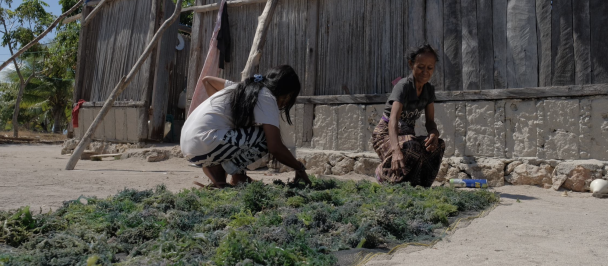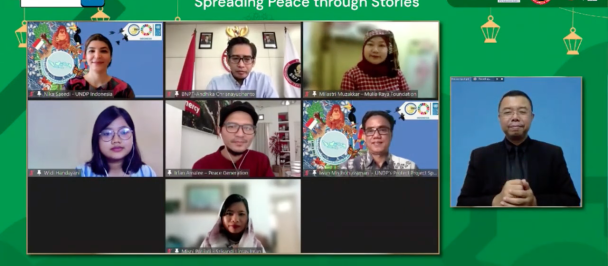Greater youth involvement is key for Indonesian businesses to survive the pandemic slump and transition to a green economic model, experts and the government said during a recent U.N-organized meeting between investors and young entrepreneurs.
Dozens of the country’s top venture capitalists and young entrepreneurs attended the roundtable discussion entitled ‘Green Economic Recovery’, hosted by the United Nations Development Programme (UNDP) and the United Nations Children’s Fund (UNICEF). Key government officials also joined the discussion which aimed to flesh out a determined strategy for a green economic transition after the pandemic.
UNDP Indonesia Resident Representative , Norimasa Shimomura said youth need to be at the center of action on green economic transition.
“We all now stand at a decisive point where we can ‘build back better' towards a green and inclusive economy. And through the youth’s role, we can make it into the realisation. Youth is essential as the agent of change. Youth entrepreneurs hold the key to the country’s success in its transition towards a green economic recovery,“ he said.
UNICEF Representative in Indonesia,Debora Comini echoed his words, saying, “We need to work with youth as equal partners to pave the way of greener solution . UNICEF Indonesia calls on the Indonesian government to ensure that business practices protect the environment and children’s rights, particularly the right to a clean, safe, and sustainable environment.”
According to UNDP research 80 percent of youth entrepreneurs in Indonesia say the pandemic has had negative impact on their business, with nearly 25 percent of businesses closed down. Several factors were highlighted as the key causes, including the lack of capital, access to safety nets, and also the general lack of a support system, especially for tapping into opportunities in the green economy.
Anna Amalia, Directorate of Environment Affairs, at Indonesia’s Ministry of National Development Planning (Bappenas), explained the green economy approach. “We acknowledged that economic development has a tradeoff on the environmental impact that sometimes negligible. The COVID-19 pandemic, however, has taught us that the tradeoff should be addressed more strategically. We have to boost more public awarenes that green economy is potential economically, and most importantly, environmentally,” she said.
Business would need to provide a “role-model” on the prospects for profit in the sustainable and green economy.
Tanah Sullivan, the Group Head of Sustainability from Indonesian decacorn Gojek, emphasized the role of multi-stakeholder platforms to boost growth for startups hoping to succeed in green economy. She also outlined Gojek’s recent launch of zero-emissions and zero waste programme.
Launched in 2010, tech giant Gojek started out as a ride hailing application to meet the rising demands for urban travel in Indonesia. It has since grown to become a super platform catering everyday needs, from bills payment to food delivery.
Hana Nur Auliana, the Head of Communications and Engagements from sustainable waste management organization, Waste4change, emphasized the importance of effective governance to strengthen young enterpreneurs, and called for regulations to support these priorities.
The Regent of Siak District, in the Province of , Wan Muhammad Yunus, discussed providing safety nets for youth, explaining that his district has provided programs and facilities for youth in the green economy through the Green Siak District Regulation.
The regulation also supports the management and rehabilitation following wildfires, the formulation of a peat ecosystem management and protection plan, and cooperation with communities regarding wildfire and peatland cultivation, and training on reforestation efforts.
###
Written by Enggi Dewanti
Edited by Tomi Soetjipto and Ranjit Jose

 Locations
Locations



